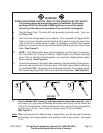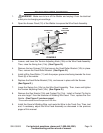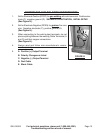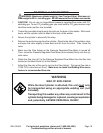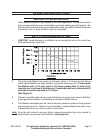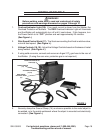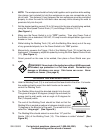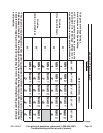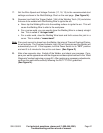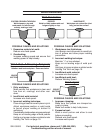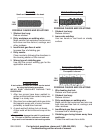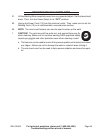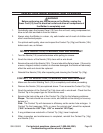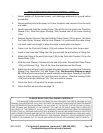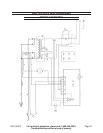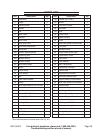
For technical questions, please call 1-800-444-3353;
Troubleshooting section at end of manual.
Page 21SKU 55525
Set the Wire Speed and Voltage Controls (17, 18, 19) to the recommended start
settings as shown in the Weld Settings Chart on the next page. (See Figure N.)
Squeeze (and hold) the Trigger Switch (15d) of the Welding Torch (15) and stroke
the area to be welded with the Welding Wire to ignite the arc.
Never tap the Welding Wire into the welding surface to ignite the arc. This will
cause the Welding Wire to stick to the workpiece.
For a narrow weld, you can usually draw the Welding Wire in a steady straight
line. This is called a “stringer bead”.
For a wider weld, draw the Welding Wire back and forth across the joint in a
curve. This is called a “weave bead”.
Note: If too much current is drawn from the Welder, the internal Thermal Overload Protec-
tor will activate. The Overload Indicator Light (28) will illuminate and the Welder will
automatically turn off. If this happens, turn the Power Switch to its “OFF” position
and wait 3 to 5 minutes for the unit to cool down. (See Figure P.)
After a few seconds, stop. Switch off the Welder, and check your progress. Com-
pare your weld’s appearance with the diagrams and descriptions shown in the “Weld
Diagnosis” section beginning on page 22. After making any necessary adjustments,
continue the weld while carefully following the DUTY CYCLE guidelines.
(See Figure N.)
17.
18.
a.
b.
c.
20.



